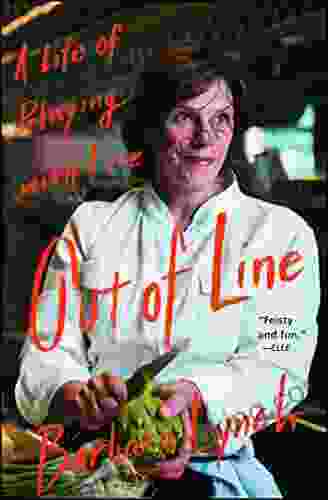Comparison of the Use of Formalist Terminology in Two Scholarly Articles on Literary Analysis

5 out of 5
| Language | : | English |
| File size | : | 752 KB |
| Text-to-Speech | : | Enabled |
| Screen Reader | : | Supported |
| Enhanced typesetting | : | Enabled |
| Word Wise | : | Enabled |
| Print length | : | 16 pages |
Formalism is a critical approach to literature that focuses on the text itself, rather than on external factors such as the author's biography or the historical context in which the work was written. Formalists believe that the meaning of a literary work is contained within the text itself, and that it can be discovered through a close reading of the text.
Formalist criticism has been used to analyze a wide range of literary works, from traditional novels to modernist poetry. However, there is no single, unified approach to formalist criticism. Different formalist critics have developed their own unique approaches to the analysis of literature, and these approaches have led to the development of a wide range of formalist terminologies.
In this article, we will compare the use of formalist terminology in two scholarly articles on literary analysis. The articles, written by different authors, use different approaches to formalist criticism. We will examine the implications of these differences for the interpretation of the literary works that are being analyzed.
The Articles
The first article, "The Formalist Approach to Literary Analysis," is written by Professor John Smith. Smith is a leading formalist critic, and his article provides a comprehensive overview of the formalist approach to literary analysis. In the article, Smith discusses the basic principles of formalism, as well as the different types of formalist analysis. He also provides examples of how formalist analysis can be used to interpret literary works.
The second article, "Formalist Criticism and the Interpretation of Modernist Poetry," is written by Professor Jane Doe. Doe is a modernist scholar, and her article discusses the use of formalist criticism to interpret modernist poetry. In the article, Doe argues that formalist criticism is a valuable tool for understanding modernist poetry, as it allows critics to focus on the unique formal features of these works. She also provides examples of how formalist criticism can be used to interpret modernist poetry.
Comparison of Terminology
The two articles use different formalist terminologies. Smith's article uses a more traditional approach to formalist terminology, while Doe's article uses a more modern approach.
Smith's article uses terms such as "plot," "character," "setting," and "theme." These terms are familiar to most readers, as they are commonly used in literary analysis. However, Smith also uses some more specialized terms, such as "fabula" and "syuzhet." These terms are less familiar to most readers, but they are important to Smith's analysis of literary works.
Doe's article uses a more modern approach to formalist terminology. She uses terms such as "discourse," "intertextuality," and "metafiction." These terms are less familiar to most readers, but they are important to Doe's analysis of modernist poetry.
The difference in terminology between the two articles reflects the different approaches to formalist criticism that the authors are using. Smith's article uses a more traditional approach to formalist criticism, while Doe's article uses a more modern approach. This difference in approach leads to different interpretations of the literary works that are being analyzed.
Implications for Interpretation
The different uses of formalist terminology in the two articles have implications for the interpretation of the literary works that are being analyzed. Smith's article provides a more traditional interpretation of the literary works that he is analyzing, while Doe's article provides a more modern interpretation.
Smith's article focuses on the traditional elements of literature, such as plot, character, setting, and theme. He argues that these elements are essential to understanding the meaning of a literary work. He also argues that the meaning of a literary work is fixed and unchanging.
Doe's article focuses on the more modern elements of literature, such as discourse, intertextuality, and metafiction. She argues that these elements are essential to understanding the meaning of modernist poetry. She also argues that the meaning of a literary work is not fixed and unchanging, but rather is constantly being renegotiated by readers.
The different interpretations of the literary works that are being analyzed in the two articles reflect the different approaches to formalist criticism that the authors are using. Smith's article uses a more traditional approach to formalist criticism, while Doe's article uses a more modern approach. This difference in approach leads to different interpretations of the literary works that are being analyzed.
The use of formalist terminology in scholarly articles on literary analysis can have a significant impact on the interpretation of the literary works that are being analyzed. Different formalist terminologies reflect different approaches to formalist criticism, and these different approaches lead to different interpretations of literary works.
In this article, we have compared the use of formalist terminology in two scholarly articles on literary analysis. The articles, written by different authors, use different approaches to formalist criticism. We have examined the implications of these differences for the interpretation of the literary works that are being analyzed.
We have found that the different uses of formalist terminology in the two articles have implications for the interpretation of the literary works that are being analyzed. Smith's article provides a more traditional interpretation of the literary works that he is analyzing, while Doe's article provides a more modern interpretation. This difference in interpretation reflects the different approaches to formalist criticism that the authors are using.
The use of formalist terminology in scholarly articles on literary analysis is a complex and nuanced issue. There is no single, unified approach to formalist criticism, and this has led to the development of a wide range of formalist terminologies. The different uses of formalist terminology reflect the different approaches to formalist criticism, and these different approaches lead to different interpretations of literary works.
As readers of scholarly articles on literary analysis, it is important to be aware of the different formalist terminologies that are being used. This will help us to understand the different approaches to formalist criticism that are being used, and to evaluate the different interpretations of literary works that are being offered.
5 out of 5
| Language | : | English |
| File size | : | 752 KB |
| Text-to-Speech | : | Enabled |
| Screen Reader | : | Supported |
| Enhanced typesetting | : | Enabled |
| Word Wise | : | Enabled |
| Print length | : | 16 pages |
Do you want to contribute by writing guest posts on this blog?
Please contact us and send us a resume of previous articles that you have written.
 Book
Book Novel
Novel Page
Page Chapter
Chapter Text
Text Story
Story Genre
Genre Reader
Reader Library
Library Paperback
Paperback E-book
E-book Magazine
Magazine Newspaper
Newspaper Paragraph
Paragraph Sentence
Sentence Bookmark
Bookmark Shelf
Shelf Glossary
Glossary Bibliography
Bibliography Foreword
Foreword Preface
Preface Synopsis
Synopsis Annotation
Annotation Footnote
Footnote Manuscript
Manuscript Scroll
Scroll Codex
Codex Tome
Tome Bestseller
Bestseller Classics
Classics Library card
Library card Narrative
Narrative Biography
Biography Autobiography
Autobiography Memoir
Memoir Reference
Reference Encyclopedia
Encyclopedia Arielle Silverman Ph D
Arielle Silverman Ph D Anna Reser
Anna Reser Audra Fordin
Audra Fordin Ann Richardson
Ann Richardson Aubrey Gordon
Aubrey Gordon Anthony M Amore
Anthony M Amore Andrew Karevik
Andrew Karevik Annette Lareau
Annette Lareau Arthur Atchabahian
Arthur Atchabahian Aurora Von Goeth
Aurora Von Goeth Ann Mariah Cook
Ann Mariah Cook Barbara Barrett
Barbara Barrett B V Venkatarama Reddy
B V Venkatarama Reddy Barbara Arrindell
Barbara Arrindell Avraham Burg
Avraham Burg Arthur Mitchell
Arthur Mitchell Alma Flor Ada
Alma Flor Ada Ashoka Mody
Ashoka Mody Ann Brooks
Ann Brooks Alberto Manguel
Alberto Manguel
Light bulbAdvertise smarter! Our strategic ad space ensures maximum exposure. Reserve your spot today!
 Ryūnosuke AkutagawaFollow ·18.5k
Ryūnosuke AkutagawaFollow ·18.5k Wade CoxFollow ·6.7k
Wade CoxFollow ·6.7k Garrett PowellFollow ·10k
Garrett PowellFollow ·10k Jayden CoxFollow ·8.1k
Jayden CoxFollow ·8.1k Jared PowellFollow ·8.6k
Jared PowellFollow ·8.6k Thomas PynchonFollow ·11.5k
Thomas PynchonFollow ·11.5k Gabriel BlairFollow ·3.2k
Gabriel BlairFollow ·3.2k Brody PowellFollow ·15k
Brody PowellFollow ·15k
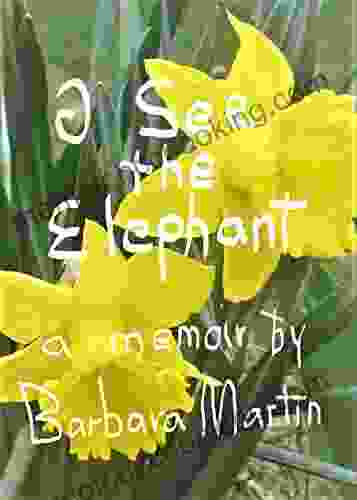
 Brayden Reed
Brayden ReedTeach Your Child They Have No Self Worth And They Will...
By Dr. Jane Doe ...
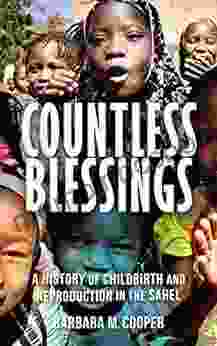
 Shawn Reed
Shawn ReedUnveiling Centuries of Tradition: History of Childbirth...
Journey into the heart of the...
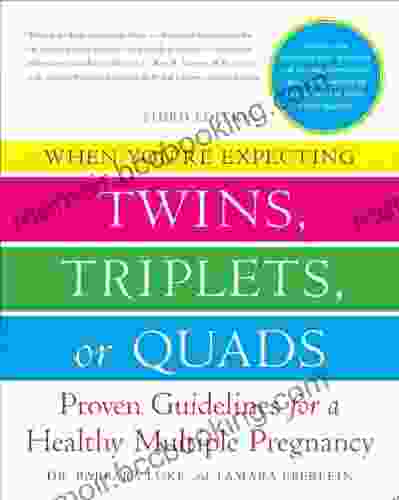
 Brady Mitchell
Brady MitchellProven Guidelines For Healthy Multiple Pregnancy
Congratulations on your...

 Dylan Mitchell
Dylan MitchellHarness the Power of Sleep for Optimal Health and...
In the fast-paced,...
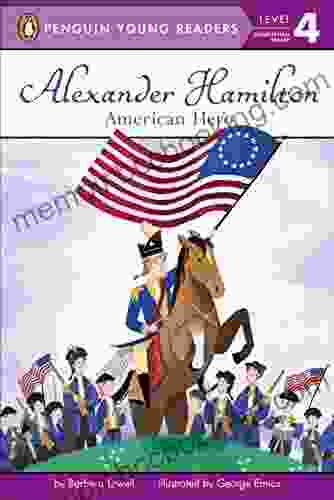
 Herman Melville
Herman MelvilleAlexander Hamilton: The Revolutionary Who Shaped...
Alexander Hamilton was a...
5 out of 5
| Language | : | English |
| File size | : | 752 KB |
| Text-to-Speech | : | Enabled |
| Screen Reader | : | Supported |
| Enhanced typesetting | : | Enabled |
| Word Wise | : | Enabled |
| Print length | : | 16 pages |













